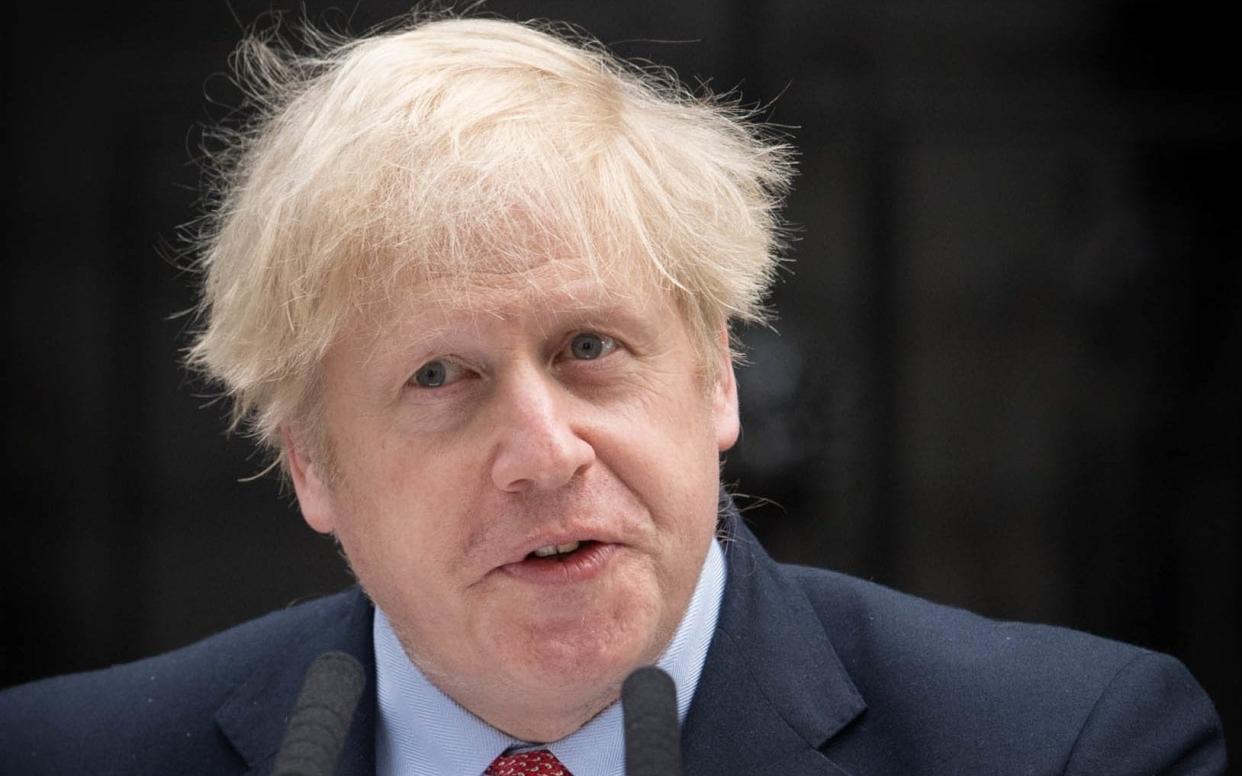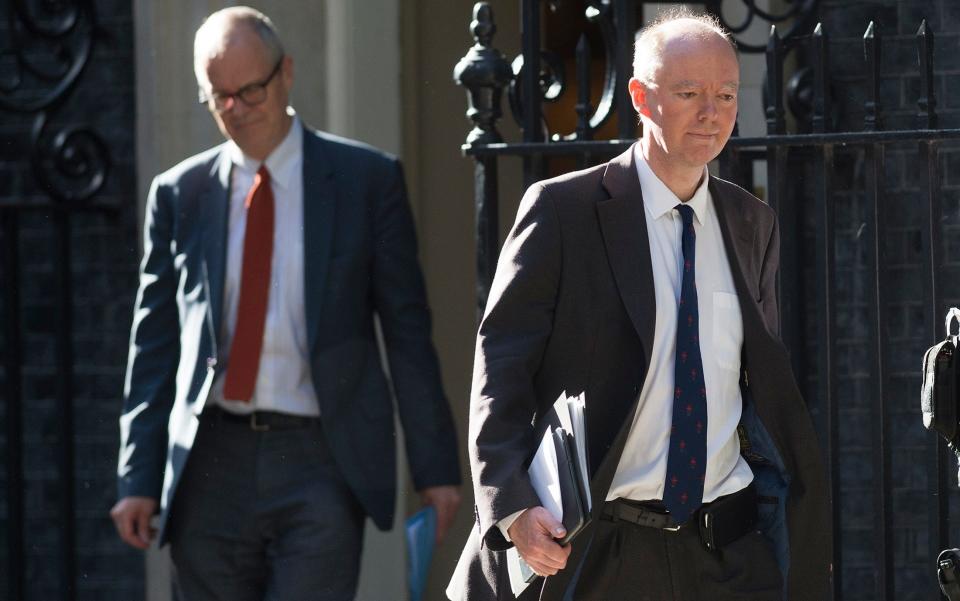Boris Johnson to urge country to return to work as Bank Governor warns of long-term recession threat


Boris Johnson will on Friday tell the nation it is time to get back to work after the Governor of the Bank of England said people's "fear" of commuting was "holding back the recovery".
The Prime Minister is concerned that the economy is recovering more slowly than had been hoped after most lockdown restrictions were lifted and wants people to return to their workplaces wherever it is safe to do so.
His worries were echoed by Bank of England Governor Andrew Bailey, who told Tory MPs on Wednesday that he was shocked by deserted city centres such as London's.
Mr Bailey set out a three-point plan for saving city centre economies, saying ministers must restore confidence in using public transport, lift all remaining restrictions and get people back to work. He warned that, if the Government did not follow his advice, the country will be "in a recession for a long time".
Mr Johnson is set to stick to a similar theme when he sets out a "road map" for the coming months at a Downing Street press conference on Friday. He is expected to change the Government's official guidance, which still says that "people who can work from home should continue to do so" and which also advises that public transport be used only for essential journeys.
Civil servants have been told to prepare to get back to their offices to set an example to the rest of the nation after ministers admitted that fewer than 10 people are working in some Whitehall buildings usually occupied by thousands.
Mr Bailey told the 1922 Committee of Tory backbenchers that workers must return to their offices to support cafes, restaurants, bars and shops that are reliant on their trade.
He said he had been driving in to his office at the Bank every day for 17 weeks and had been shocked how empty London felt, with commuters and tourists staying away, adding that he is one of only around 80-100 staff working from the Bank each day out of thousands who work there.
Mr Bailey, the first Governor of the Bank to address the 1922 Committee in decades, pointed out that train usage remained below 20 per cent of capacity.
One Tory MP on the videoconference said the Governor spoke at length of his concerns that the "fear of using public transport is really holding back the recovery because people aren't going into their office" and set out a "three-point plan" of how he thinks this needs to be addressed.
Another MP said it involved: "One, trying to get people to overcome their caution and trying to get more people back on public transport. Two, unlocking all the restrictions as quickly as possible. And three, trying to boost productivity by getting people back to work.
"He said we'd be in a recession for a long time if we didn't do all these things."

A third source said: "The point he was making was that the only way we are going to revive central London and other city centres is if people feel confident about using public transport. And until they feel confident about using public transport, then they are not going to return."
Mr Johnson has indicated that he wants the official advice on going to work to change, having already suggested people should go to work if they can do so safely.
However, he must first convince the chief medical officer, Professor Chris Whitty, and the chief scientific adviser, Sir Patrick Vallance, that it is safe to change the advice, otherwise he will be open to accusations that he has ignored his own experts.
The two scientists have in the past routinely joined Mr Johnson at his coronavirus press conferences, and he will on Thursday ask them for their support when they attend a meeting of the Cabinet's Covid-19 committee, which decides policy on fighting coronavirus.
Prof Whitty and Sir Patrick will also attend a meeting of the Scientific Advisory Group for Emergencies (Sage) on Thursday, at which the risks of further easing lockdown measures will be discussed.

Earlier this month, Prof Whitty appeared lukewarm about the Government's decision to allow pubs and restaurants to reopen, saying it was "absolutely not" a "risk-free next step".
Mr Johnson said last week that he wanted people to go back to work and support the economy, but his plea appeared to have little or no effect.
Network Rail reported that passenger numbers were at 20 per cent of pre-coronavirus levels on Monday, with no discernible increase in footfall from a week earlier. The Prime Minister now believes changing the official advice is the only way to alter behaviour, and wants civil servants to help lead the push.
In some Whitehall buildings, as few as one in 400 workers are physically present, and one Government source said: "Civil servants will need to be dusting off their suits after Friday."
However, Mr Johnson faces resistance from the unions, with Dave Penman, the general secretary of the FDA civil service union, saying his members were "there to provide vital public services, not simply supply customers to city centre economies at risk to their personal health".
Sir Graham Brady, the chairman of the 1922 Committee, on Wednesday called on the Government to review its guidance on working from home.
He said: "Does the Prime Minister agree with me that the worst reason for staying at home is to follow blanket Government advice that takes no account of safety, and will he commit to revising the Government advice urgently?"
Mr Johnson replied: "I happen to think that employers in this country have made huge strides in getting our workplaces safe, and that is the message that I think that we should all be conveying."
Rail firms are already abandoning the Government's message to avoid unnecessary journeys as they try to convince people to return to public transport. Thameslink, which operates in the south-east, has removed posters telling people to travel only if it is essential, and replaced it with new advertising urging passengers to "travel safely this summer".
The Department for Transport removed the guidance that public transport should be avoided from its website last week, but still instructs commuters to work from home or use alternative methods of transport if possible.
Mr Johnson also committed, for the first time, to holding an independent inquiry into the Government's handling of coronavirus. He told MPs: "Of course we will seek to learn the lessons of this pandemic in the future and certainly we will have an independent inquiry into what happened."

 Yahoo News
Yahoo News 
